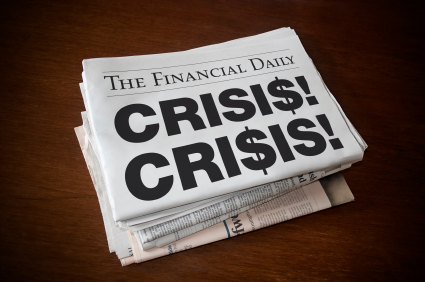How One Wrong Word Can Create A Huge Crisis
William Davis, a writer for the American Nuclear Society and a friend of this blog, recently sent me an article he had written about the huge difference one word can make.
His article focuses on an unremarkable incident that occurred at a nuclear plant in Ukraine late last month. He writes that the event was little more than a “fault in electrical transmission equipment,” which is common “in the world of power generating equipment anywhere, no matter the power source.”
The real problem occurred when Ukraine’s Premier dubbed this minor incident an “accident.”
The term ‘nuclear accident,’ so still burned into the minds of so many after Chernobyl and Fukushima, refers to a very serious event. An event that compromises all the layered, defense-in-depth levels of safety protecting nuclear materials from reaching the environment.
In the case of the Ukrainian Nuclear Power Plant, Zaporizhia Unit 3, no such event occurred and was never approached.”
The Premier’s use of the wrong word, “accident,” led to terrifying but untrue international headlines and even affected Ukraine’s bond market. William’s post is a perfect example of how an ill-chosen word can magnify—or even create—a crisis.
A Similar Example From A Recent Training
We recently conducted a crisis communications drill related to foodborne illness. The scenario began with a report that six employees, all of whom had attended the same catered event, reported to the facility’s health center with complaints of nausea, vomiting, and diarrhea.
We ran this scenario with different groups of trainees several times, and we saw the same mistake during the practice press conferences each time: Every spokesperson referred to this as an “outbreak.”
“Outbreak” is a scary word, especially when it is applied to a foodborne illness that might be the result of an intentional act. Simply saying that word during a press conference would give the media an easy hook—”An outbreak of unknown origin!” —and the facts up to that point didn’t justify such heightened language.
Other trainees in this drill used the word “situation,” which also suggested a degree of seriousness (perhaps even foul play) that was unjustified by the scenario. Those words—”situation,” “outbreak,” “event,” even “incident”—would only serve to make the established facts sound more severe.
What should the spokespersons have done? They should have simply stuck to the facts:
“What we know is that 1,000 people attended an event and that six of them have checked into a local hospital with symptoms of nausea and gastrointestinal distress. They are being cared for and are expected to make a full recovery. We do not know whether a food item might have been the source of this illness, but we are asking anyone else who attended the event and feels similar symptoms to call us at 312-555-5555.”
Don’t miss a thing! Click here to instantly join our mailing list and receive the best of the blog twice each month.



A word. A sentence. A tweet. It all can send you into some dark part of your career if you don’t handle these things right.
Brad,
My guess is that the spokespeople in the case you are discussing are all healthcare professionals. Outbreak has a very specific definition and six cases from one exposure definitely fits the definition of outbreak. So, they are using language which is completely appropriate to their profession but in the public’s mind because of novels and movies carries a somewhat more dramatic flavor.
Gillian H.